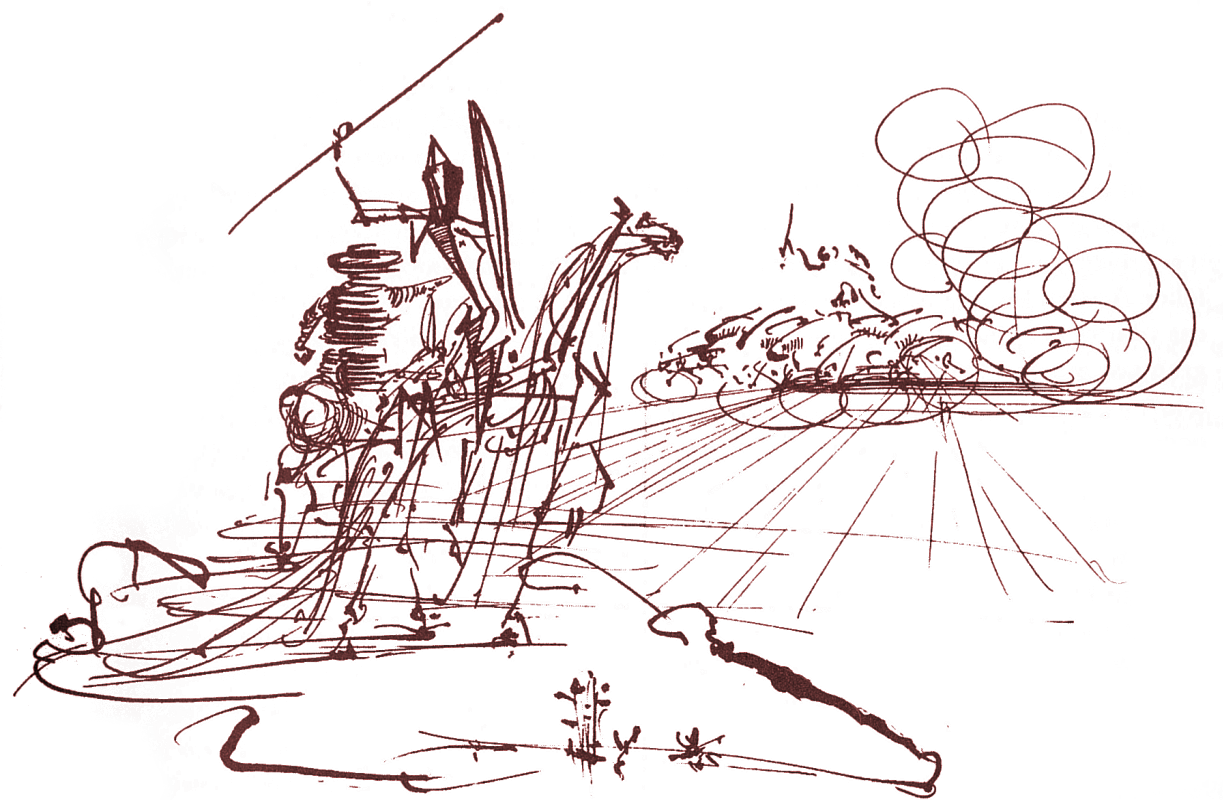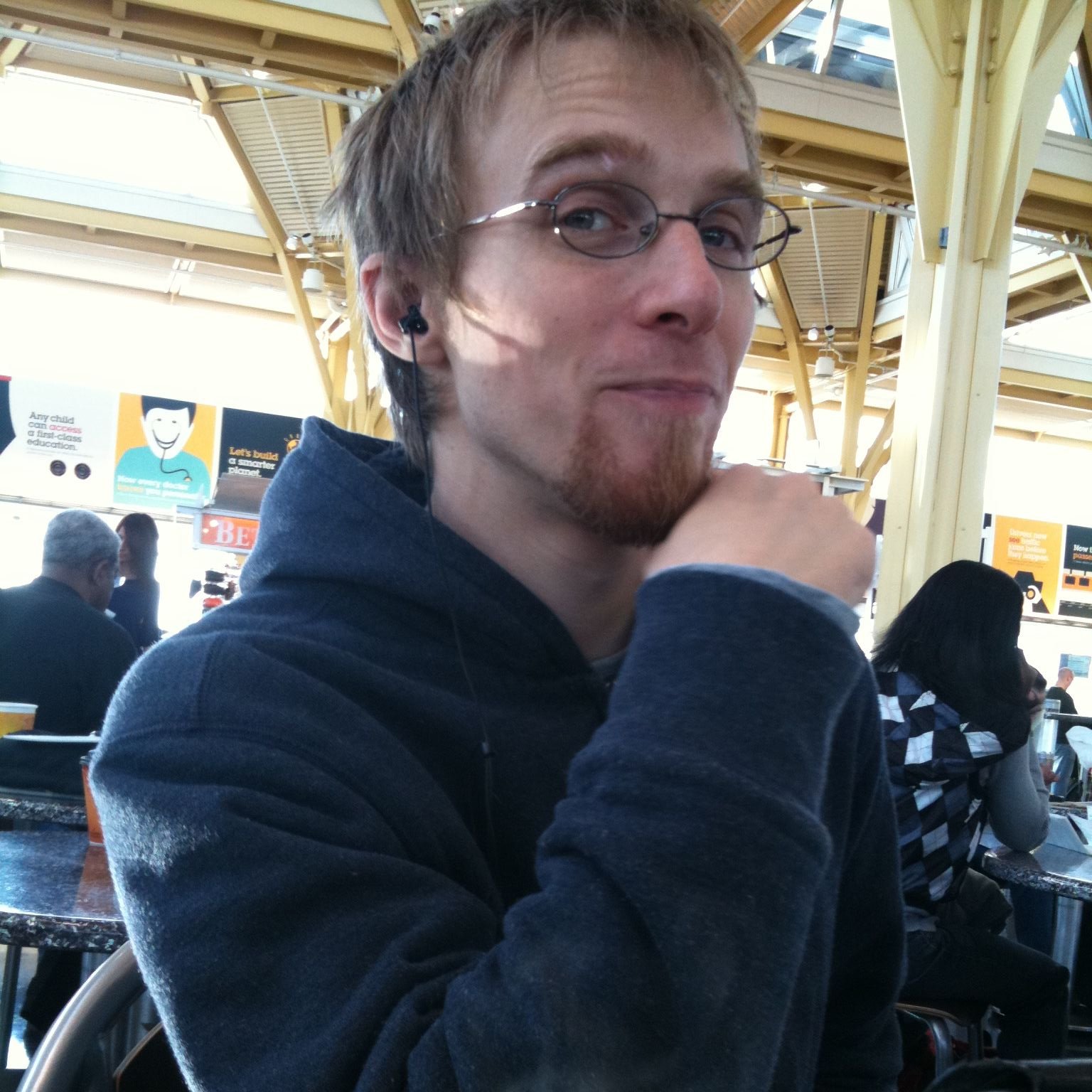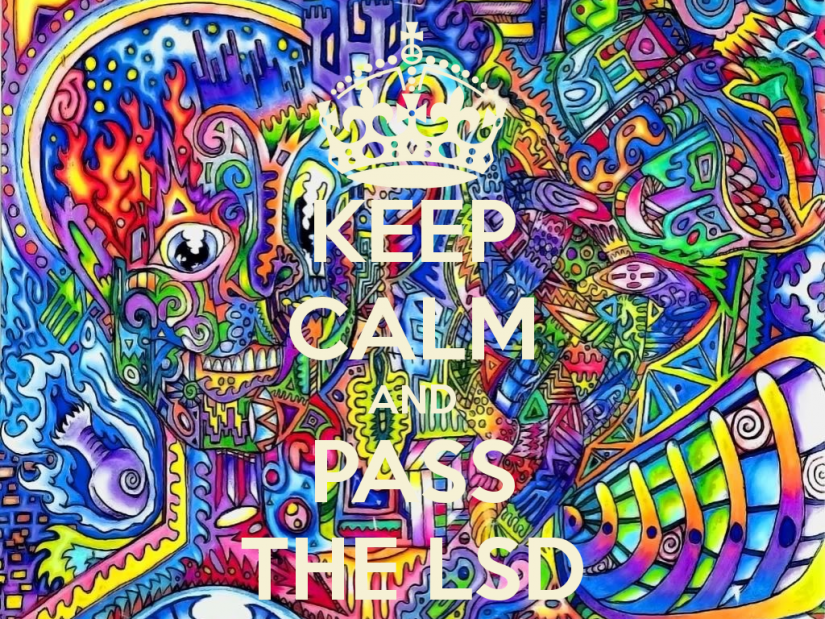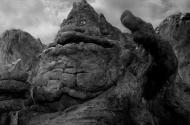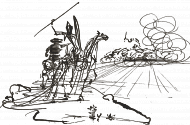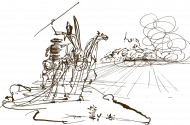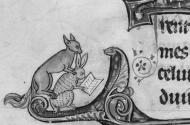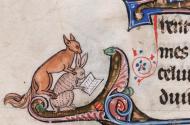I love Peter Rollins' honesty about his dark night of the soul.
He's popularized a term for the intellectual position accompanying the dark night of the soul: a/theism. I interpret Peter's thought as being in relation to an experience of God's absence. [Note: corrected this paragraph's content from "even coined" to "popularized. Turns out another author coined a/theism."]
I thought it was hilarious that Tony Jones challenged Peter to give up atheism for Lent on the Homebrewed Christianity podcast.
 But I took it seriously when Micah Bales, one of my best friends, wrote a post challenging Peter Rollins' Atheism for Lent. You can't give up God because God is a felt presence. [Update: Peter responded to Micah. And Brian Merritt a piece about who Micah is.] Our conversations got me thinking about what I value about Peter Rollin's voice and what I might challenge about a/theism as I understand it. In order to talk about why a person believes or disbelieves in God, you have to talk about a personal spiritual journey.
But I took it seriously when Micah Bales, one of my best friends, wrote a post challenging Peter Rollins' Atheism for Lent. You can't give up God because God is a felt presence. [Update: Peter responded to Micah. And Brian Merritt a piece about who Micah is.] Our conversations got me thinking about what I value about Peter Rollin's voice and what I might challenge about a/theism as I understand it. In order to talk about why a person believes or disbelieves in God, you have to talk about a personal spiritual journey.
A Long Road
 I was called to begin searching for the Way before I was called to the Way of Jesus. While tripping balls, after I had a lived experience of the unplugging scene from the Matrix, God appeared in the clouds and told me to give up my material possessions. I threw my weed, my pager, my keys, my wallet, and my cigarettes into the woods. I experienced the death of my friends and visited their graves. You know, your normal LSD-Christian-Matrix-mixtape God experience.
I was called to begin searching for the Way before I was called to the Way of Jesus. While tripping balls, after I had a lived experience of the unplugging scene from the Matrix, God appeared in the clouds and told me to give up my material possessions. I threw my weed, my pager, my keys, my wallet, and my cigarettes into the woods. I experienced the death of my friends and visited their graves. You know, your normal LSD-Christian-Matrix-mixtape God experience.
I hitchhiked across the country. I lost all of my stuff on the side of the road, but I kept going. People gave me what I needed, and I dumpstered the rest. I prayed my questions, and people who gave me rides would give me answers to my questions. It was as though the universe and I were in conversation.
I converted to Christianity while reading the Bible serving a six-month prison term for an act of civil disobedience to close down the School of the Americas, a notorious US training grounds for Latin American military officers. Prison was phase one of a dark night of the soul for me. In fact, as Peter talked about the loss of all identity, the loss of all symbolic markers on the Homebrewed Christianity podcast... this is how I felt in prison. No community, no possessions, and in an alien culture, I felt totally alone, as though my self had no point of reference. In prison, while reading the Bible outside against the library wall, in front of an inmate baseball game, I read Matthew's beatitudes and I felt Jesus enter my body like a spreading warmth. I was born again.
Traveling to Central America, I developed a chronic digestive problem that left me fatigued constantly. I developed carpal tunnel from a boxing/typing injury and a foot problem that made walking difficult. I felt that three of my limbs were worthless. I was in and out of work. I quit trying to make freelance writing my career because I couldn't type without pain.
I prayed, but my prayers were dry and desolate. I asked God for healing and for God's presence, but I heard nothing.
Fortitude
I have always struggled with meaning, especially in the mornings. But I get out of bed and go through the motions of happiness, I brush my teeth, and I eat breakfast, and I await the dawn of my happiness. This is the posture of the Christian in the dark night of the soul. An existential fidelity: obedience.
I describe this fidelity with the with the greek word hypomone: literally, "remaining under," "...which the Book of Revelation regards as the highest Christian virtue. It is usually somewhat limply rendered "patient endurance," but it is in fact closer to "absolute intransigence," "unbending determination," "an iron will," "the capacity to endure persecution, torture, and death without yielding one's faith (Walter Wink)." With our existential fidelity, we build a life-structure that is a suitable resting place for the Holy Spirit.
Because I am constantly interpreting and re-interpreting my spiritual experiences, at times, I have doubted the existence of God as a separate being. When I doubt, I move into hypomone.
Doubt and the Interpretation of the Subjective Experience of God
Christianity had given me a sort of codex for my spiritual experiences. I learn from ancestors more godly than I how to interpret my experiences. That is to say, when you feel strangely warm while reading Matthew 5, who's to say that you're experiencing the presence of the third member of the Trinity or a bodily humor? Experientially, I know that when I pray and read the Scriptures I feel a loving presence. And yes, in several of my spiritual encounters, the presence was clearly identified to me as Jesus. But sometimes I forget. I doubt. I want to shed the cultural baggage of interpretation and interpret my experience apart from the cultural matrix of Christianity. I am gnawed by a doubt: my mind is like a hungry dog that begins to devour its own tail.
But, when not gnawing on itself, my rational mind has been a backstop for me: a place where I hold a conversation with my ancestors. If my faith makes sense materially, my modernist-trained reason will be less likely to see that part of my brain as food. As I read Jesus Seminar historians like J.D. Crossan, I begin to understand Jesus' ministry from a materialist and a social justice perspective, and that helps me to be faithful when God is absent. That's where Peter Rollins comes in.
For the Christian intellectual, spiritual and material experiences of God are stones of remembering, and we build our intellectual castles, our material understandings of Scripture, on these stones. I seek to be accountable to these stones.
Peter Rollins
I do not know Peter Rollins. Though if we were in the same town, I would. I read Insurrection (very good), and I've kept up on his site over the years. I believe Peter is good for those who, like me, sometimes do not experience the presence of God. We are all called to different stages of the Christian journey, to be present at the stages of life. Perhaps Peter is a minister called to this stage of the faith journey. And perhaps "Give up God for Lent" is a just a name for a reading of writers critical of religion, not an actual call to expel the presence of the living God tabernacled in your person. But it still misses my experience of God.
I don't think my experience fits into anybody's boxes. But whose does?
Sometimes I think Peter gets condescending when he asks us to "Give up God for Lent," and talks about God as a sort of psychological fetish-object of certainties. When Tony Jones asked Peter Rollins to give up atheism for Lent, his tone matched Rollins' in condescension (you have to hear it). And there's a duality of conversion there. Finding and losing God, and admitting you were wrong. So... does Rollins get to be right? Does Rollins get to end up with certain beliefs in post-belief? The certainty of a/theism? This points to a failure of the postmodern project more broadly, and ultimately may be the crucifixion of a belief-crucifying belief system (related poem).
I've had a rough-and-tumble spiritual journey, perhaps like Peter. I met God on acid, and converted to Christianity in prison. I learned nonviolence after a boxing injury. I was born again after leaving behind a clouded life.
But I don't recommend learning faith this way. I recommend the slow, steady growth of a plant towards the sun, with minor corrections, pruning and weeding.
As a person who has been through dark nights of the soul, I can say that a dark night of the soul is nothing to court. Nor is atheism.
But the real question is whether or not Peter believes that after we crucify our idols of God, that beyond it we will walk just a little bit closer to God. The resurrection.
Is Peter Rollins a gardener, working on his plants with a pastoral care?
Is Peter Rollins' dark night of the soul one that expects God to return?
Though called as a writer, I was silent for years. As James puts it, "Not many of you should become teachers, my brothers and sisters, for you know that we who teach will be judged with greater strictness. For all of us make many mistakes. Anyone who makes no mistakes in speaking is perfect, able to keep the whole body in check with a bridle (NRSV)."
And so I pray, as Czeslaw Milosz once prayed, accompanied, no doubt, by Peter Rollins and the company of saints, that my teachings and my poetry are written under the inspiration of God.
Amen.
